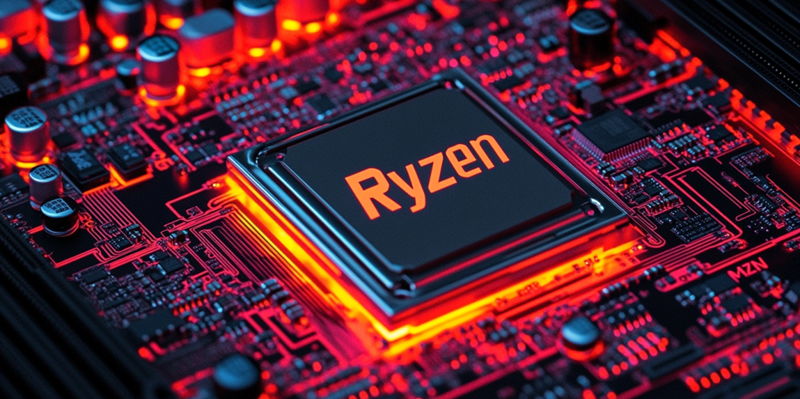In a significant leap for the PC gaming industry, AMD’s Ryzen 7 9800X3D, set to launch in November 2024, introduces the revolutionary Zen 5 architecture that promises substantial performance improvements compared to previous models. For gamers and tech enthusiasts, the excitement surrounding this CPU is well-merited. The primary feature of the Zen 5 architecture is a remarkable 16 percent increase in IPC (instructions per cycle), which enhances both single-core and multi-core operations, ensuring faster and more efficient performance without altering the core configurations seen in earlier Zen 4 CPUs. Instead, AMD has optimized these new CPUs for better efficiency, cooler operations, and seamless compatibility with the latest AM5 motherboards.
One of the most striking aspects of the Ryzen 7 9800X3D is its stunning gaming performance and operational efficiency. In head-to-head comparisons, AMD’s latest processor significantly outshines Intel’s recent and somewhat disappointing Core Ultra 200S launch. This impressive showing solidifies AMD’s position as a dominant force in the PC gaming marketplace. Various benchmark tests, spanning CPU and discrete GPU gaming performance, reveal the Ryzen 7 9800X3D’s extraordinary capabilities. Further assessments of power consumption and temperature management highlight the CPU’s efficiency gains, proving that it operates not only with higher performance levels but also with remarkable thermal management and energy efficiency.
The overall reception of the AMD Ryzen 7 9800X3D underscores its ability to push the boundaries of PC gaming technology, bringing forth a new era of exceptional performance coupled with outstanding efficiency. This latest CPU iteration showcases significant architectural advancements and a keen readiness for market demands, indicating AMD’s commitment to leading the industry with innovative and powerful solutions. The Ryzen 7 9800X3D’s debut promises to revolutionize gaming experiences and set a new standard for future technological developments in the world of PC gaming.

